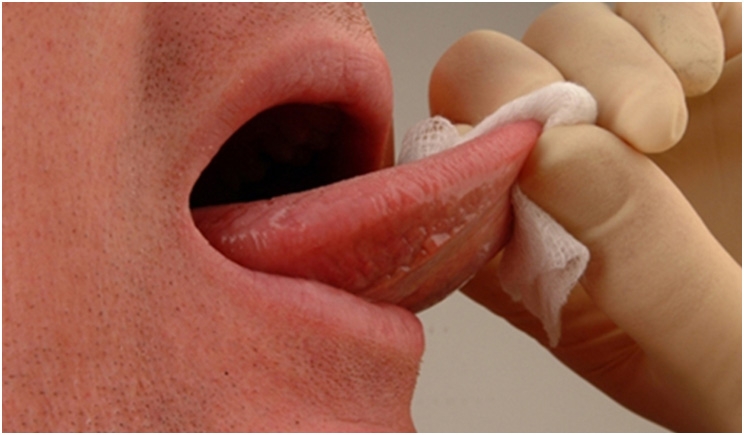The tongue, an organ that plays a crucial role in communication and taste, can also be vulnerable to the threat of cancer. Tongue cancer, while relatively uncommon, can manifest with subtle signs that are often overlooked. In this article, we’ll explore the signs and symptoms of tongue cancer, shedding light on early detection and the importance of prompt medical attention.
Signs and Symptoms of tongue cancer
Understanding Tongue Cancer:
Tongue cancer refers to the abnormal and uncontrollable growth of cells in the tongue. It can occur on the surface of the tongue, known as oral tongue cancer, or within the base of the tongue, termed base of the tongue cancer. Both types present distinct signs, and awareness of these indicators is essential for early diagnosis.

Common Signs and Symptoms:
- Persistent Mouth Sores: One of the earliest signs of tongue cancer is the presence of persistent mouth sores that do not heal. These sores may appear as red or white patches, often causing discomfort or pain.
- Changes in Tongue Color: Observing unusual changes in the color of the tongue, such as the development of dark or discolored areas, can be indicative of underlying issues, including tongue cancer.
- Difficulty or Pain While Swallowing: Tongue cancer can affect the ability to swallow comfortably. Individuals may experience pain or discomfort while eating or swallowing, leading to unintentional weight loss.
- Persistent Sore Throat: Chronic sore throat unrelated to cold or flu symptoms can be a warning sign. If a sore throat persists for an extended period, it is advisable to seek medical attention.
- Numbness or Tingling: Tingling or numbness in the tongue or other areas of the mouth may occur as the cancer progresses. This can affect speech and contribute to a general feeling of discomfort.
- Speech Changes: Changes in speech, including slurred or unclear speech, can be attributed to tongue cancer. As the tumor grows, it may impact normal tongue movement, influencing pronunciation.
- Ear Pain: Unexplained pain in the ears, especially on one side, may be associated with tongue cancer. The tongue and ears share nerve pathways, and discomfort in one area can be referred to the other.
Conclusion:
Recognizing the signs and symptoms of tongue cancer is paramount for early detection and effective treatment. Regular dental check-ups and self-examinations can contribute to the timely identification of potential issues. If any of the mentioned symptoms persist for more than two weeks, it is crucial to consult a healthcare professional promptly. Early intervention can significantly improve the prognosis and quality of life for individuals diagnosed with tongue cancer. Remember, your oral health is an integral part of your overall well-being, and paying attention to subtle changes can make a substantial difference in your health journey.
Frequently asked Q&A
- What is tongue cancer?
- Tongue cancer is a type of cancer that develops in the cells of the tongue. It can occur on the surface of the tongue (oral tongue cancer) or within the base of the tongue.
- What are the common signs of tongue cancer?
- Common signs include persistent mouth sores, changes in tongue color, difficulty or pain while swallowing, chronic sore throat, numbness or tingling, speech changes, and ear pain.
- How is tongue cancer diagnosed?
- Diagnosis typically involves a thorough examination by a healthcare professional, including a physical examination of the mouth and tongue. Biopsy, imaging tests, and other diagnostic procedures may also be recommended.
- What are the risk factors for developing tongue cancer?
- Risk factors include tobacco use, excessive alcohol consumption, human papillomavirus (HPV) infection, poor oral hygiene, and a history of oral lesions or sores.
- Can tongue cancer be prevented?
- While it may not be entirely preventable, adopting a healthy lifestyle, avoiding tobacco and excessive alcohol consumption, practicing good oral hygiene, and receiving the HPV vaccine can reduce the risk of developing tongue cancer.
Related posts:
Empowering Wellness: Customized Diet Plans for Cancer Patients
7 Ways Dark Chocolate Can Improve Your Overall Health










Leave a Reply